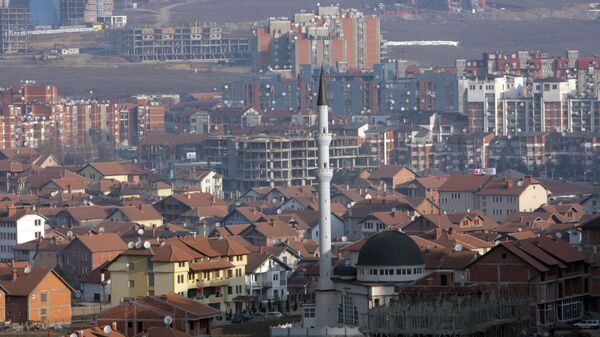Sputnik Serbia discussed the issue with Kosovan political scientist Nexhmedin Spahiu, who explained that it will be the west who will decide what coalitions will emerge in the newly elected parliament.
"The west plays the key role in forming of the new government, as it was with the former cabinet, which was a joint product of Germany and the US. Nothing could have been done without them. It depends, first of all, on the western embassies [deciding] which coalition will come to power. They will break and unite parties at their own will," he told Sputnik.
He further noted that the radical movement Vetëvendosje (Albanian for self-determination) might also play a role in forming coalitions. And the Serbs will certainly be included into the new government regardless of who takes the post of prime minister as the quota for the Serbian minority in the parliament and the government is set forth in the constitution of Kosovo.
"These two can't stand each other, but it does not matter as it is up to the western embassies to decide whom to reconcile. And the fact that Thaçi's Democratic Party of Kosovo supported the candidacy of Ramush Haradinaj only proves this," Spahiu told Sputnik.
The political scientist also recalled that the US and other western countries have repeatedly warned Albanian leaders to closely inspect their electoral lists. The warning came with regards to the special court set up in The Hague which will try serious crimes allegedly committed by members of the Kosovo Liberation Army (KLA) against ethnic minorities and political opponents during the 1998-1999 war in Kosovo.
It is assumed that upon the results of the court, the parties, whose leaders have certain war records, might lose some of their members.
"We'll learn it when the court starts its work. It will also depend on the western embassies who will decide whom it is easier to send to The Hague, those in power or those in the opposition," Spahiu said.
Spahiu also speculated what the policies of the next Prime Minister might be, if Ramush Haradinaj takes the post. He will likely to go on with the negotiations between Kosovo and Serbia on the normalization of relations between the two countries even though he previously voiced his reluctance to do so. The negotiations, the political scientist said, have been initiated by the West and Haradinaj won't dare to stand in their way.
"To be honest, Albanian society is not interested in this "Greater Albania" project. There are less and less interested in it in Kosovo. Montenegro also shows no interest in it, and if it was a serious project, Montenegro would be the first to be targeted," he told Sputnik.
He further noted that Jonuz Musliu, an ethnic Albanian politician and mayor of the Bujanovac municipality in the southern part of central Serbia, who advocates the idea of the unification of Albania and Kosovo with the annexation of the territories of southern Serbia, the so-called Presevo valley, seems to be the only supporter of the initiative.
"Kosovo is the creation of the West. Without the operation of the West and NATO it would have never existed and would have never declared independence [from Serbia]. What is being said by the Albanian politicians is their way to blackmail the West: if you do not support our authority, we will destroy your project, the independent Kosovo. It is true, even though it sounds like lunacy," he told Sputnik.
He also commented on the recent remarks of former head of the OSCE verification mission in Kosovo William Walker who said that he "has a project to unite Albanians."
Earlier in May, the American spoke during a ceremony in Pristina to mark the 17th anniversary of the founding of Ramush Haradinaj's party, the Alliance for the Future of Kosovo.
"William Walker is a retired person who wants to attract attention to himself again. He once played a role for Kosovo but he is definitely not our ideologist," Spahiu told Sputnik.
The political scientist further commented on the future of Kosovo, saying that it by no means will be independent and sovereign.
"In the present-day world, when all the countries are interconnected with each other, there is no truly sovereign state. Even the US, the strongest country in the world, is not sovereign. What can we say about small countries when the greatest states can't be called independent any longer," he said.
At the end of his interview, Nexhmedin Spahiu speculated whether Kosovo could raise its own army, suggesting that it will depend on NATO. If the Alliance demands one, Kosovo will get the one, he stated.







